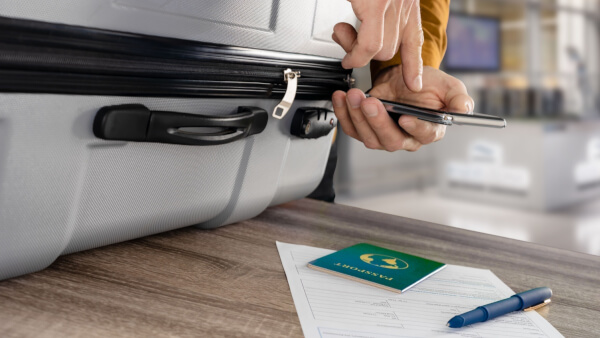Compare Revolut Alternatives in Australia: Features and Fees
Compare Revolut and its alternatives in Australia on features and fees to find the best multi-currency account for your needs.

With more than 27% of Australians being born overseas as of 2021, being the beneficiary of an overseas inheritance is not as uncommon as it once was. This quick guide will uncover what a windfall inheritance means in Australia and explore what you need to do when receiving it, even as a non-tax resident.
| 💰 Wise provides you the mid-market exchange rate and transparent transfer fees shown upfront. |
|---|
Learn more about
Wise money transfers
| Note: This article is purely for general information purposes and is not to be taken as financial advice. We recommend that you obtain independent financial advice before making any form of decision. |
|---|
Generally, a windfall inheritance is a significant amount, enough to impact an individual's financial situation and is usually received unexpectedly.
Receiving an inheritance on its own does not constitute or form part of your taxable income in Australia. This means if you receive a large sum of cash or are inheriting property or other assets, you don’t have to pay additional taxes at the time you receive it. You may have to pay taxes if the asset makes you an income through interest, dividends or rental income though.
This rule changes if you are not an Australian resident for tax purposes. For foreign residents receiving an Australian estate, you may owe capital gains tax (CGT) the moment the estate is transferred under your name.¹
In Australia there are a few processes that occur before you can receive a windfall inheritance, especially if you are a resident abroad. You’ll need to²:
While the idea of receiving a large sum of money may sound like a life changing experience, the circumstances before and after can make it overwhelming. The best thing to do when you do receive a large sum of money is to seek professional advice on how best to manage it.
As mentioned, there are no inheritance taxes in Australia. Taxes on inheritance become a reality in the following circumstances:
We’ll cover these circumstances in more detail below.
To receive a super death benefit in Australia, you must be nominated by the deceased individual as the beneficiary of their superannuation. Taxes owed will depend on whether the superannuation is taxable, and if it the benefit is received as income stream rather than a lump sum.³
In some instances, an inheritance can be accumulating income in intermediary transfer time. If this happens, you will need to include the income it makes as part of your next tax return. Similarly, if an asset you receive does provide a new income stream then it will then need to be included in every subsequent tax return.
As part of an estate you might receive an asset you aren’t interested in keeping. This could be in the form of shares or property. If you decide to sell or dispose of an asset you receive, you will be subject to CGT based on the capital gained from when the deceased individual bought the asset in question.⁴
For those that are not Australian tax residents but are receiving an Australian resident inherited asset, CGT is owed the moment the transfer of the asset occurs. The CGT owed will usually be deducted as part of the estate administration.⁵
Receiving a large sum of money and then transferring it domestically within Australia is relatively simple. It can get a bit complicated if you are planning to transfer a windfall inheritance abroad.
Fortunately, there is no limit to the amount of money you can send overseas. However, how you go about moving a large sum of money overseas may bring with it some extra declarations and fees. You can send money abroad by⁶:
If you decide to carry the cash out of Australia or post it in the form of cash or other form, you will need to declare any amounts greater than $10,000 when leaving Australia.⁶
Where a remittance provider is used, there is no need to declare anything to the Australian authorities, however the provider itself may have certain limits or an obligation themselves for large amounts. It's good to know also that it is likely that there will be fees attached when sending the money using a bank or a remittance provider which should be factored in when deciding how you want to move your inheritance back home.⁶
You should keep in mind that If you receive other asset types that are based in Australia, you should get advice around your obligations to the Australian tax authority. Secondly, accessing legal and financial advice is highly recommended in circumstances such as this.
Receiving a large inheritance can certainly change ones life. However, it’s important to take a deep breath and take some time to come to terms with what’s happened. This will ensure that the windfall you’ve received can be used as best as it can be and impact your life in the most meaningful way.
Send money with Wise and you get the mid-market exchange rate, which means no surprise mark-up on your currency conversions. Fees are clear, shown upfront and secure.
Wise is a specialist in sending large amounts overseas, securely. The added bonus is that with a sliding fee scale, the more you send, the more you save. The exchange rate is always based on the mid-market rate.
In Australia, Wise is regulated by the Australian Securities and Investments Commission (ASIC) and holds an Australian Financial Services Licence (AFSL number 513764).
It’s super easy to arrange a payment with Wise. Once your account is approved, you can set one up in minutes, without the need to visit a physical branch in person.
Join over 16 million customers currently enjoying Wise. It’ll only take a few minutes to register and see what’s inside.
Register your Wise account
in minutes
| Please see Terms of Use for your region or visit Wise Fees & Pricing for the most up-to-date pricing and fee information. |
|---|
| This article is purely for general information purposes and is not to be taken as financial advice. We recommend that you obtain independent financial advice before making any form of decision. |
|---|
Sources:
Sources checked on: 21 September 2024
*Please see terms of use and product availability for your region or visit Wise fees and pricing for the most up to date pricing and fee information.
This publication is provided for general information purposes and does not constitute legal, tax or other professional advice from Wise Payments Limited or its subsidiaries and its affiliates, and it is not intended as a substitute for obtaining advice from a financial advisor or any other professional.
We make no representations, warranties or guarantees, whether expressed or implied, that the content in the publication is accurate, complete or up to date.

Compare Revolut and its alternatives in Australia on features and fees to find the best multi-currency account for your needs.

Compare the best CommBank credit cards. Discover which CommBank credit card is best for you, from Qantas points to zero-interest options and travel perks.

Does your Bankwest credit card have travel insurance? Discover which cards still offer complimentary cover, the activation rules, and what it covers.

Planning an international transfer? Our Money Travels review covers everything from fees, exchange rates, and safety to help you decide if it's right for you.

Thinking about Hay Australia? In this Hay review, we break down the account features, card benefits, fees, and how it compares to alternatives.

Planning a large money transfer with ING Bank in Australia? Discover fees, daily limits, processing times, and alternatives.